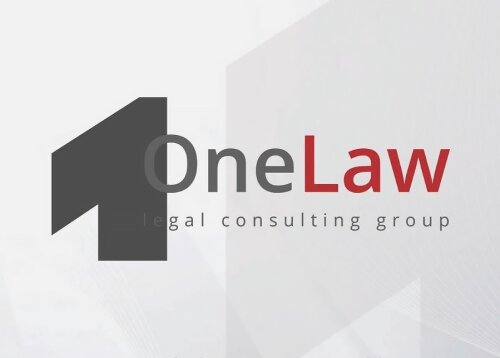Best Natural Resources Lawyers in Yekaterinburg
Share your needs with us, get contacted by law firms.
Free. Takes 2 min.
List of the best lawyers in Yekaterinburg, Russia
About Natural Resources Law in Yekaterinburg, Russia
Yekaterinburg, located in the Sverdlovsk Oblast, is an area rich in natural resources, including minerals, forests, and water resources. As part of Russia's extensive landmass, the region plays a crucial role in the country's natural resources management. Natural Resources Law in Yekaterinburg primarily deals with the regulation and use of these resources, focusing on sustainable development, environmental protection, and commercial exploitation. This legal area encompasses a diverse range of issues, including mining rights, water use permits, and forestry regulations.
Why You May Need a Lawyer
Engaging with natural resources in Yekaterinburg can present a variety of legal challenges. Here are common situations where legal help might be necessary:
- Obtaining permits for resource exploration and extraction.
- Navigating environmental regulations and compliance issues.
- Negotiating contracts and leases for land use and resource exploitation.
- Resolving disputes over resource ownership or environmental damages.
- Understanding taxation and reporting requirements related to resource activities.
Legal counsel can help ensure that you are compliant with local and federal laws and support you in any legal disputes that may arise.
Local Laws Overview
In Yekaterinburg, natural resources are primarily governed by federal laws in conjunction with local regulations specific to the Sverdlovsk Oblast. Key aspects include:
- The Federal Law on Subsoil governs the exploration and extraction of mineral resources.
- The Water Code regulates the use and protection of water resources, emphasizing sustainable exploitation.
- The Forest Code provides guidelines on the sustainable management and use of forest resources.
- Environmental legislation imposes strict criteria for environmental impact assessments and ecological safety requirements.
Understanding these legal frameworks is essential for effectively managing and using natural resources in the region.
Frequently Asked Questions
What types of permits are required for resource exploration?
Exploration requires specific permits, including geological study permissions and environmental impact assessments, as defined by the Federal Law on Subsoil and local authorities.
How can I ensure compliance with local environmental regulations?
Compliance involves understanding and adhering to both federal and regional environmental laws, conducting environmental impact assessments, and continuously monitoring activities.
What are the penalties for illegal resource extraction?
Penalties can include hefty fines, suspension of operations, and potential criminal charges, depending on the severity of the infraction.
What legal avenues exist for resolving disputes over land use?
Disputes can be resolved through arbitration, mediation, or litigation in the appropriate judicial forums, often requiring legal representation.
Are there incentives for sustainable resource management?
Yes, there are federal and regional programs that offer incentives, such as tax benefits or grants, for practices promoting sustainable management and reduced environmental impact.
Can foreigners obtain rights for resource extraction?
Foreign entities can participate in resource extraction but must adhere to stringent legal requirements and may need to partner with Russian companies.
What role do local communities play in resource management?
Local communities may be involved in consultation processes, and their rights are often protected under laws requiring impact assessments and public participation.
How are water use rights regulated?
Water use rights are regulated under the Water Code, requiring permits for significant use or diversion of water resources to ensure sustainability and quality.
What constitutes illegal logging, and what are the consequences?
Illegal logging includes unauthorized cutting down of trees, leading to penalties such as fines, restitution, and criminal charges, as outlined by the Forest Code.
How to report environmental violations?
Environmental violations can be reported to local government bodies or federal environmental agencies. Legal advisors can assist in the reporting process.
Additional Resources
If you require further assistance or information, consider reaching out to these resources:
- The Ministry of Natural Resources and Environment of the Russian Federation.
- The Federal Agency for Subsurface Use (Rosnedra).
- The Regional Department of Environmental Protection and Natural Resources of the Sverdlovsk Oblast.
- Local environmental NGOs and advocacy groups.
Next Steps
If you require legal assistance concerning natural resources in Yekaterinburg, consider the following steps:
- Research and contact legal professionals specializing in natural resources law.
- Prepare documentation and details regarding your specific issue for consultation.
- Schedule a legal consultation to discuss your situation and explore your options.
- Follow legal advice and procedures to address your needs, whether it involves acquiring permits, negotiating disputes, or regulatory compliance.
Engaging with a knowledgeable lawyer can provide valuable guidance and ensure that your interests are well-represented.
Lawzana helps you find the best lawyers and law firms in Yekaterinburg through a curated and pre-screened list of qualified legal professionals. Our platform offers rankings and detailed profiles of attorneys and law firms, allowing you to compare based on practice areas, including Natural Resources, experience, and client feedback.
Each profile includes a description of the firm's areas of practice, client reviews, team members and partners, year of establishment, spoken languages, office locations, contact information, social media presence, and any published articles or resources. Most firms on our platform speak English and are experienced in both local and international legal matters.
Get a quote from top-rated law firms in Yekaterinburg, Russia — quickly, securely, and without unnecessary hassle.
Disclaimer:
The information provided on this page is for general informational purposes only and does not constitute legal advice. While we strive to ensure the accuracy and relevance of the content, legal information may change over time, and interpretations of the law can vary. You should always consult with a qualified legal professional for advice specific to your situation.
We disclaim all liability for actions taken or not taken based on the content of this page. If you believe any information is incorrect or outdated, please contact us, and we will review and update it where appropriate.










